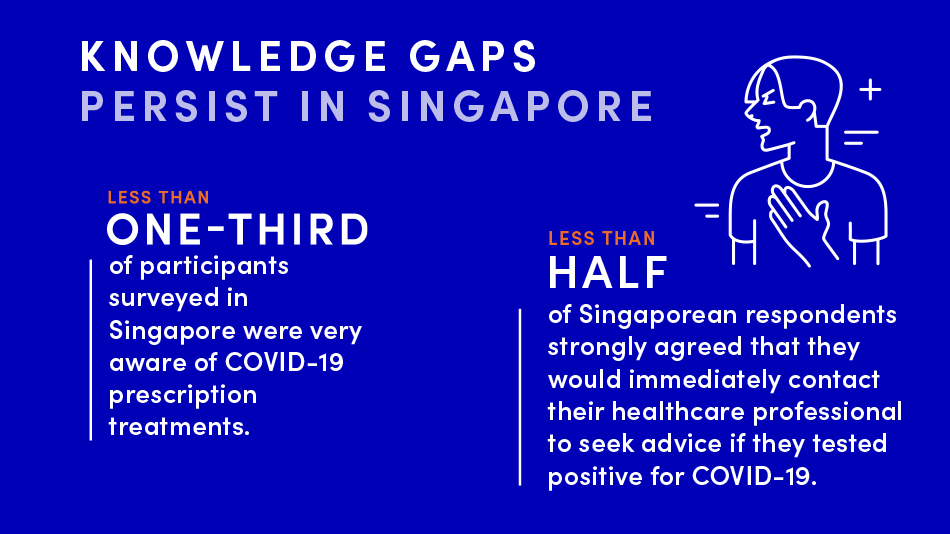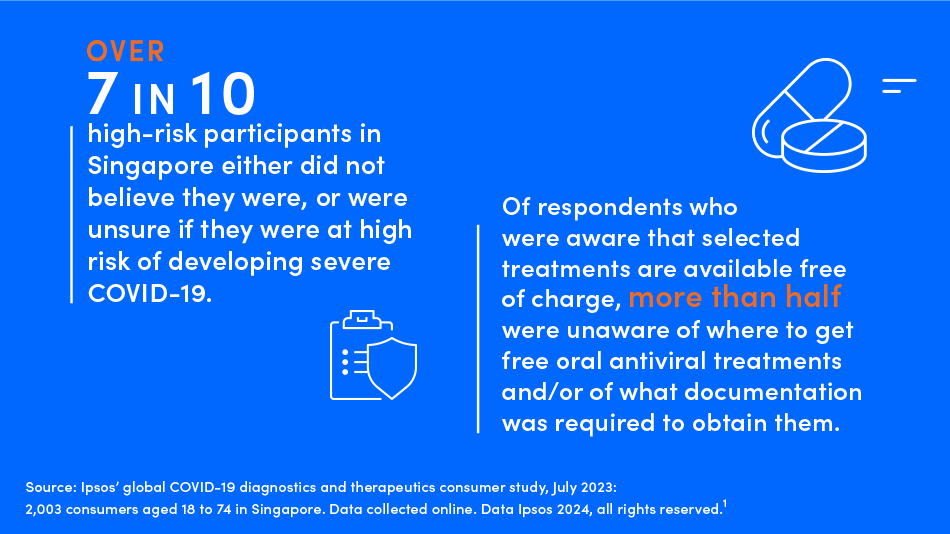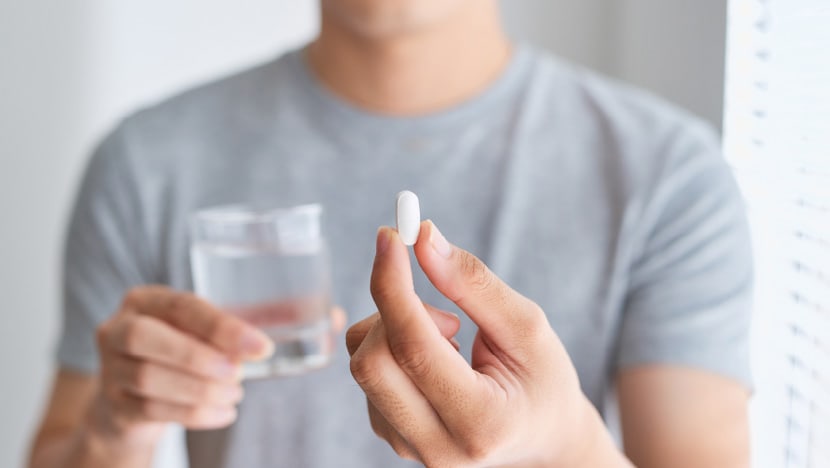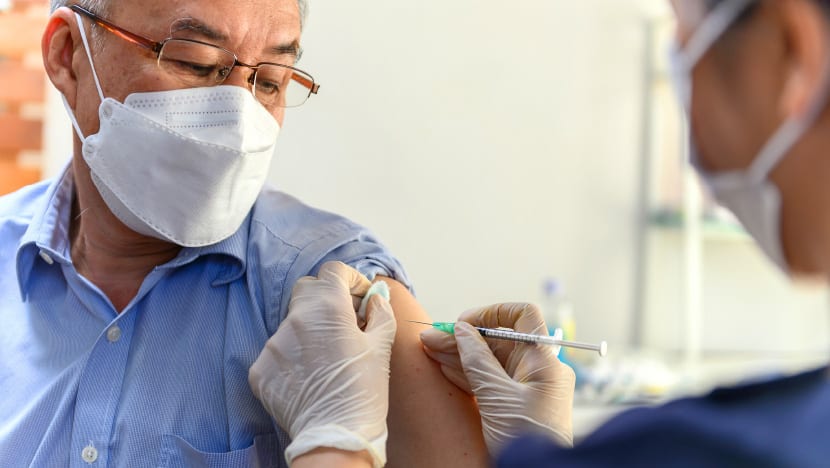The holidays are traditionally a time for joy and family reunions. However, with the festivities comes an increased risk of respiratory infections — including COVID-19 and pneumococcal pneumonia — which is often overlooked in light of the festive cheer.
Last year, the period leading up to Christmas saw the biggest spike in COVID-19 cases of 2023, resulting in numerous hospitalisations and critical care treatments. With Chinese New Year around the corner, healthcare professionals remain alert to the possibility of another surge in respiratory infections.

“Festive seasons, with their increased travel and social gatherings, are prime times for the exchange of various viruses,” observed family physician Dr Leong Choon Kit. “Such events can lead to the spread of infections, particularly among the vulnerable.”
Despite the pandemic’s end, the threat of respiratory infections lingers. “Many of these infections, including COVID-19, compromise the immune system, potentially leading to secondary infections like pneumococcal disease,” Dr Leong explained. He also highlighted the issue of long COVID, where symptoms such as phlegm, cough, runny nose, shortness of breath and palpitations persist for more than three months, impacting daily life.

This risk is particularly acute for seniors and those with pre-existing medical conditions. “Such infections can trigger a cascade of reactions in the body, which causes collateral damage to pre-existing conditions,” cardiologist Dr William Kristanto said. “In my practice, I’ve seen patients with influenza or COVID-19 experiencing severe heart complications as a result.” He also noted the potential for COVID-19 to cause lasting lung damage.
Vaccinations remain critical, particularly during festive times, as a guard against COVID-19 and influenza, especially given the emergence of new variants. “Pneumococcal vaccines are highly recommended for those over 65 or with chronic health conditions to prevent severe infections like pneumonia and meningitis,” Dr Leong added.


THE CRITICALITY OF TIMELY INTERVENTION
While vaccinations are vital, they may not entirely prevent infection. In cases where symptoms appear or exposure to the virus is suspected, seeking medical advice promptly is imperative for medically vulnerable people. The early administration of oral antiviral treatment for COVID-19 is crucial in reducing the severity and fatality risk of the disease, especially for high-risk individuals.
Oral antivirals, which are designed to inhibit a key enzyme for the replication of the COVID-19 virus, are most effective when taken within five days of contracting COVID-19. “Initiating oral antiviral treatment early significantly enhances its effectiveness in curtailing and mitigating the severity of COVID-19,” emphasised Dr Leong.

This prompt action is particularly important for high-risk groups, including adults over 50, especially those with compromised immune systems or chronic conditions such as heart or lung diseases, diabetes, kidney disease, and individuals on chemotherapy.
“Infections can lead to severe organ damage and exacerbate chronic conditions, with documented cases resulting in stroke, heart and renal complications, and pulmonary issues,” Dr Leong observed.
For example, patients with coronary artery disease might experience aggravated symptoms due to the inflammation caused by viral infections. “There’s considerable evidence that post‑infection, patients face an elevated risk of heart attacks and heart failure — a risk that persists for weeks or even months post‑infection,” explained Dr Kristanto.

“If you belong to a high-risk category, it’s critical to recognise that even a virus as common as COVID-19 can rapidly escalate the complications of an existing condition. Therefore, seeking timely medical intervention is essential to prevent conditions from escalating,” he underscored.
UNDERSTANDING ORAL ANTIVIRAL TREATMENT
• To reduce the risks and hospital admissions associated with severe COVID-19, the Ministry of Health (MOH) covers the costs for oral antiviral treatment, regardless of the patient’s vaccination status.
• Eligible patients for free oral antiviral treatment include those aged 18 and older, who exhibit symptoms within five days of infection, and at risk of severe disease from conditions such as active cancer or heart issues.
• Subsidised oral antiviral medications are available at all polyclinics and selected clinics for high-risk patients, based on a clinical assessment for severe COVID-19 risk.
• Find an oral antiviral clinic near you here.
ESSENTIAL INSIGHTS FOR PROTECTION
A striking finding from an ongoing study on COVID-19 prescription therapeutics conducted independently by Ipsos with over 60,000 people across 29 countries in July 2023, revealed that a notable 76 per cent of the participants in Singapore classified as high risk2 either did not believe they were, or were unsure if they were at high risk of developing severe COVID-19.
“Most of them may not truly understand the extent of how vulnerable they are,” Dr Kristanto said. “Often, they perceive their chronic condition and their viral infection as unrelated issues, despite the potential for serious interconnections. This mindset can lead to a dangerous lowering of their guard.”

Interestingly, the study also indicated that only 44 per cent of Singaporean respondents strongly agreed3 that they would immediately contact their healthcare professional to seek advice if they tested positive for COVID-19.
Furthermore, in Singapore, awareness of COVID-19 prescription therapeutics, including oral antivirals, was notably low, with only 28 per cent of participants surveyed in Singapore stating that they were very aware4 of these treatments.
Dr Leong highlighted that the benefits of oral antiviral medications typically surpass the risks, and that the side effects are usually minimal. He recommends visiting a polyclinic or a general practitioner (GP) clinic within the Primary Care Networks for eligible individuals to access these treatments.
For those with compromised immune systems, proactive health management is key. This includes consulting healthcare professionals before vaccinations for safe and effective immunisation and ensuring swift medical attention for respiratory infections.

Dr Leong also emphasised the importance of seeing a family physician who is familiar with one’s chronic conditions. “A knowledgeable doctor can better manage the overall impact on the patient’s health,” he said.
SAFE CELEBRATIONS IN THE TIME OF COVID-19
While the COVID-19 pandemic may no longer be a global health emergency, it still poses risks during festive periods. To ensure safe and enjoyable celebrations, healthcare professionals stress the importance of enhanced health and hygiene habits. “Keep your vaccinations up to date to cover new COVID-19 variants. Those in close contact with the elderly, such as caregivers and younger family members, should be particularly vigilant about getting vaccinated to prevent transmission,” advised Dr Leong.
He also recommended staying informed about outbreaks, particularly in regions planned for travel, whether for work or leisure. Adopting preventive measures like wearing masks, maintaining social distancing and frequent hand sanitising is especially crucial during these times.

Importantly, if you experience any symptoms of illness, avoid large gatherings to curb the spread of viruses. Dr Leong emphasised: “Protecting your health and the well-being of others is a key aspect of responsible celebration, ensuring everyone can safely partake in the holiday joy.”
1 Ipsos’ COVID-19 diagnostics and therapeutics consumer study is an ongoing syndicated survey conducted among consumers on the Ipsos Global Advisor online platform. Results cited in this article were based on research conducted between Jul 3 and 13 last year among 2,003 consumers aged 18 to 74 in Singapore. The full study was conducted among more than 60,000 adults in 29 countries. The recruitment process aims to ensure a nationally representative base for the samples collected. All data were collected online. Data Ipsos 2024, all rights reserved.
2 Consumers at high risk of getting seriously ill from COVID-19 were defined as those who were 60 or older, or, current or previous smokers, or, aged 18 or over with at least one comorbidity (of those included in survey).
3 The rating scale used in the study ranges from 1 to 7, where a score of 1 indicates “do not agree at all” and a score of 7 indicates “completely agree”.
4 The rating scale used in the study ranges from 1 to 7, where a score of 1 indicates “not at all aware” and a score of 7 indicates “very aware”.
This article is sponsored by Pfizer Singapore. The opinions expressed in this article are solely attributable to the expert(s)/ speaker(s)/participant(s) appearing in therein. This material is intended for educational/disease awareness purpose only and is not intended to replace consultation with the healthcare professional. For any further information please consult your healthcare professional. Please refer to the latest Singapore Ministry of Health Guideline for oral antiviral treatment eligibility criteria.
References available upon request.














